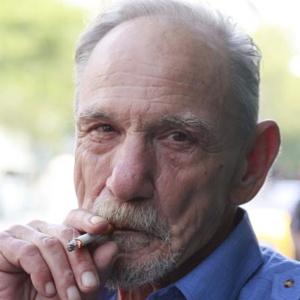Henry Hill dead at 69
Henry Hill, the infamous mob informant whose life of crime was chronicled in the film classic “GoodFellas,” was the first to admit that he did “a lot of bad things back then.”
“I shot at people. I busted a lot of heads, and I buried a lot of bodies” – he told the London-based Daily Telegraph in 2010. “You can try to justify it by saying they deserved it, that they had it coming, but some just got whacked for absolutely no reason at all.”
Hill, 69, who was in the federal witness protection program in the 1980′s and later made various attempts to cash in on his notoriety as an ex-mobster, died Tuesday at West Hills Hospital in West Hills, Calif., said Nate Caserta, the son of Hill’s girlfriend, Lisa Caserta.
Hill, who had open-heart surgery last year, died of complications of heart problems related to smoking – Nate Caserta said.
A onetime member of the Lucchese crime family in New York, Hill’s criminal endeavors included participating in the 1978 heist of 5,8 million dollars from the Lufthansa air cargo terminal at John F. Kennedy International Airport, the largest single cash robbery in U.S. history; and helping fix Boston College basketball games in the 1978-79 season.
In 1980, after narcotics agents busted the cocaine operation Hill was running, he chose to become a prosecution witness against his former mob associates and entered the witness protection program.
Henry Hill went from small-time gangster to a big celebrity when his 1986 book Wiseguy: Life in a Mafia Family was published.
The book, by journalist Nicholas Pileggi, told detailed, disturbing and often hilarious tales of his life in the mob.
“Henry Hill was a hood. He was a hustler. He had schemed and plotted and broken heads” – Pileggi wrote in the book. “He knew how to bribe and he knew how to con. He was a full-time working racketeer, an articulate hoodlum from organised crime.”
Born on June 11, 1943 in Brooklyn, New York, Hill was an associate of New York City’s Lucchese crime family from the 1960′s into the 1980′s.
His crimes included dealing drugs and hijacking trucks, and he was involved in the 1967 Air France robbery in which $420,000 was stolen from the airline’s terminal at New York’s John F Kennedy International Airport.
Hill spent six years in prison for extortion, but continued his criminal activities while behind bars.
His most famous heist was in December 1978, months after he was released from prison, when he and others stole $5m from Lufthansa Airlines at JFK airport.
Fearing for his life afterwards when his associates were killed, Hill became an informant for the FBI.
Hill, his wife Karen, and their children Gregg and Gina entered the government’s witness protection programme, and he testified against his former crime bosses.
“The arrest of Henry Hill was a price beyond measure” – Pileggi wrote. “Hill had grown up in the mob. He was only a mechanic, but he knew everything. He knew how it worked. He knew who oiled the machinery. He knew, literally, where the bodies were buried. If he talked, police knew that Henry Hill could give them the key to dozens of indictments and convictions.”
Henry Hill was born June 11, 1943, in the Brownsville-East New York area of Brooklyn. He was of Irish and Sicilian descent. His father was a union electrician with a quick temper.
Partly out of spite, but mostly out of awe, Mr. Hill ingratiated himself with the bulky men in pinstripe suits who used to hang around a cab stand near his home.
“At the age of twelve my ambition was to be a gangster. To be a wiseguy” – Mr. Hill said in the book. “To me being a wiseguy was better than being president of the United States. It meant power among people who had no power. It meant perks in a working-class neighborhood that had no privileges. To be a wiseguy was to own the world.”
Under witness protection, he was arrested at least six times on various charges, including burglary and attempted possession of methamphetamine. He eventually left the program and assumed his old identity.
His marriage to Karen Hill ended in divorce. A complete list of survivors could not be determined.
The state of New York attempted to recover some of Mr. Hill’s earnings from Simon & Schuster through the “Son of Sam” law, which prohibited criminals from profiting from their notoriety. The publisher took the state to court on First Amendment grounds.
The case ultimately reached the U.S. Supreme Court, which ruled in favor of Simon & Schuster and struck down the law. The victory brought Mr. Hill money he was owed.
Mr. Hill’s life in the mafia had made him millions, but he lost it all to “slow horses, women, drugs and rock and roll.”
To earn extra money, he sold “Goodfellas” mugs and aprons on his Web site. The Web page also listed his top 10 ways to get rid of a body.
